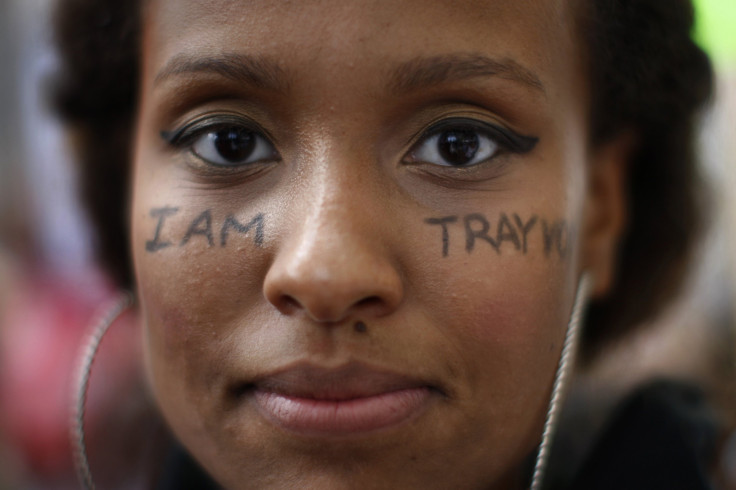Trayvon Martin’s 21st Birthday: Teen Who Inspired Black Lives Matter Movement Was Headed To College, Family Says

This might have been the year that Trayvon Martin, the Florida teen killed by a neighborhood watchman in 2012, graduated from college. Martin’s mother has said he was considering which colleges he should apply to and preparing to take college entrance exams in the weeks before his death.
That future was altered days after his 17th birthday, when George Zimmerman tailed and shot Martin in the gated community where he and the teen’s father lived in Sanford, Florida, Feb. 26, 2012. Had Zimmerman and Martin never met, the teen would have turned 21 Friday.
Happy birthday #TrayvonMartin. He would've been 21 today. pic.twitter.com/Q87Zmm7wWp
— zellie (@zellieimani) February 5, 2016
Finally 21. Baby bro, I wish I could take you out for your first drink. #HappyBirthday #Trayvon pic.twitter.com/XYy2NxuYJ9
— Jahvaris Fulton (@jahvaris_martin) February 5, 2016
Even though Martin had recently been disciplined by his high school, nothing about his life suggested he was destined to meet his demise the way he did, his family has said. On a rainy evening, Martin left his father’s condominium on foot to get a snack at a local store — he returned to the gated community with a package of Skittles candy and an Arizona-brand fruit juice.
But Zimmerman, the then-27-year-old armed volunteer neighborhood watch captain, did not recognize the teen and told 911 dispatchers that he assumed Martin was casing homes for a potential burglary. Eventually, Zimmerman confronted the teen and the two engaged in a fight that ended with Zimmerman, who is of white and Hispanic heritage, firing his gun at Martin, who was African-American and unarmed.
The incident didn’t gain national media attention until days later, when details emerged about how local law enforcement agencies were handling their investigation. Zimmerman, who remained on the scene until officers arrived, was taken into custody, interviewed and photographed, before he was allowed to go home that evening. This outraged Martin’s family and social justice activists in the black community, who wanted murder charges filed against Zimmerman.
It would take two months and the appointment of a special prosecutor before Zimmerman would be arrested, indicted and booked in jail for killing Zimmerman. But several months later, in 2013, Zimmerman went to trial and was acquitted of a second-degree murder charge.
The decision sparked a nationwide outcry and became the impetus for Black Lives Matter, a social justice movement that began on social media networks. The movement evolved to street protests against the killing of young black men and women by police officers and vigilantes, especially those who are cleared of wrongdoing despite evidence to the contrary.
© Copyright IBTimes 2025. All rights reserved.






















